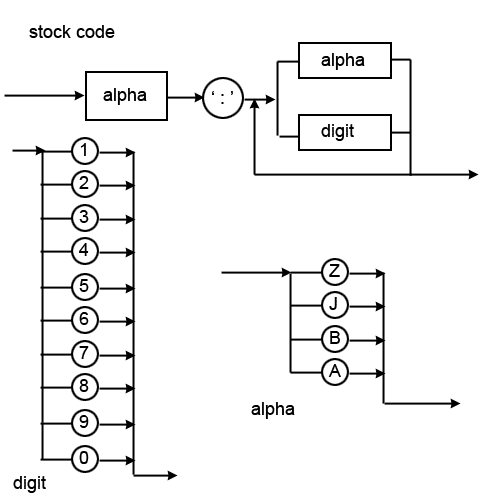Difference between revisions of "BNF - Syntax Diagrams"
| Line 1: | Line 1: | ||
| + | ==BNF== | ||
Backus Naur Form is a way of describing the syntax of a value to form a new value. <br /> | Backus Naur Form is a way of describing the syntax of a value to form a new value. <br /> | ||
For example: <br /> | For example: <br /> | ||
| Line 7: | Line 8: | ||
<integer> ::= <digit> | <digit><integer> <br> | <integer> ::= <digit> | <digit><integer> <br> | ||
This states that an integer can be a digit or a digit followed by another integer. | This states that an integer can be a digit or a digit followed by another integer. | ||
| + | |||
| + | ==Syntax Diagrams== | ||
| + | These are a diagram approach similar to BNF, they also describe the syntax allowed. | ||
| + | |||
| + | [[File:syntaxdiagram.gif]] | ||
Revision as of 21:05, 21 May 2017
BNF
Backus Naur Form is a way of describing the syntax of a value to form a new value.
For example:
<digit> ::= 0 | 1 | 2 | 3 | 4 | 5 | 6 | 7 | 8 | 9
This declares that <digit> can only be the numbers 0-9, specifically 0 OR 1 OR 2 OR 3 etc.
This notation can also be recursive:
<integer> ::= <digit> | <digit><integer>
This states that an integer can be a digit or a digit followed by another integer.
Syntax Diagrams
These are a diagram approach similar to BNF, they also describe the syntax allowed.
